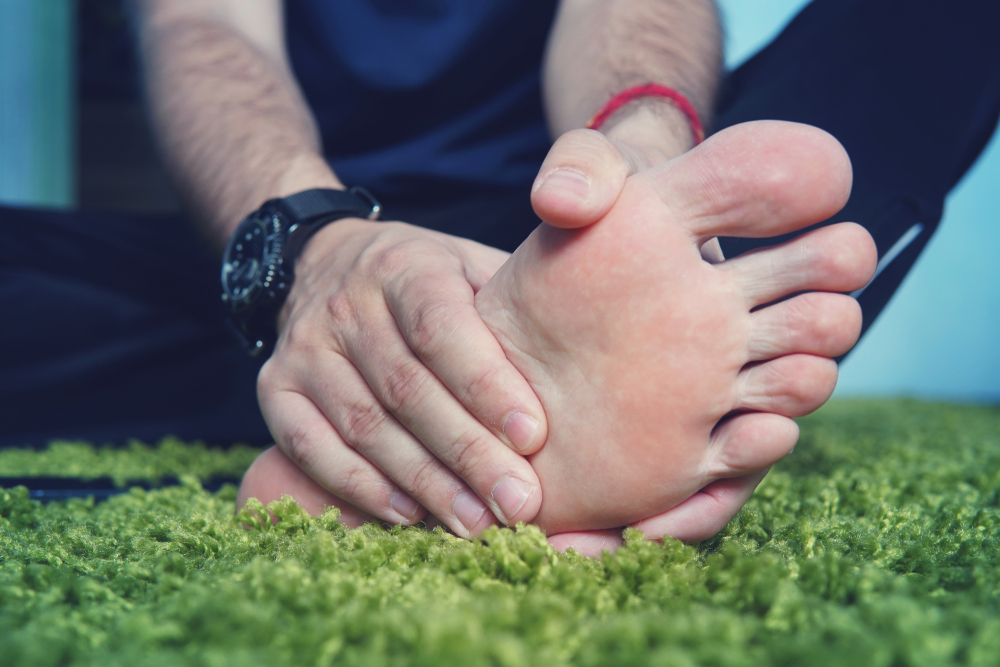Gout is the result of an increase in uric acid in your system that can lead to crystal deposits in your joints, and because of this buildup, your likelihood of developing kidney stones can also increase.
Gout is also considered to be a painful form of arthritis, if not the most painful, causing symptoms of pain, swelling (including lumps under the skin), and stiffness, notes the National Institute of Arthritis and Musculoskeletal and Skin Diseases. Here are six factors that can increase your chances of developing gout…
Diet
Not surprisingly, what you put into your body can influence your chances of developing gout. The Mayo Clinic explains that a diet that’s high in meat and shellfish can heighten your levels of uric acid, which in turn increases your chances of getting gout.
The source also warns that beverages high in fruit sugar (fructose) can also increase uric acid, as can alcoholic beverages (especially beer). Try keeping these types of foods and drinks in moderation, or cut them out altogether if your doctor has advised so.
Gender and Age
Arthritis-Health.com explains that men are more likely to develop gout, although while women have a lower risk level overall, it increases following menopause.
Meanwhile, increasing age also increases the risk of gout, although the source points out that many people have had an episode of gout as early as age 30. However, it explains that an estimated 12-percent of men aged 70 to 79-years old have had gout, but less than 3-percent of men under 50 have experienced this health problem.
Ethnicity
While we’ve already established that males are more likely to suffer from gout, being a black or Hispanic male could further drive up the risk. GoutEducation.org notes these 2-ethnic groups are at a higher overall risk of this form of arthritis.
“Some ethnic groups suffer more gout than others. This is genetic,” notes the source. Another factor could be the quality of healthcare. “Recent studies suggest that African-Americans are not treated as effectively for gout as are Caucasians in the United States,” according to RheumatologyNetwork.com.
Family History
Speaking of genetics, Arthritis-Health.com adds that some people may be “more prone to accumulating uric acid and developing the uric acid crystals that lead to gout” based on whether their relatives had the problem.
However, that being said, the source admits more research needs to be done to understand the genetic link, and why some people with few risk factors end up with gout while others seemingly at high risk never get it.
Excess Weight
Arthritis.org explains that your body’s ability to flush out uric acid is impacted by your weight. “Carrying extra weight slows down the removal of uric acid by the kidneys,” explains the source.
One problem with excess body fat is resistance to the hormone that regulates glucose in the body. When levels of this hormone (meant to regulate blood sugar) remain “abnormally high” because your body is less sensitive to it, adds the site. Resistance to the hormone that regulates glucose in the body “is likely the major player in the increased risk of gout linked to body fat,” it adds.
Certain Medications
Common over-the-counter painkillers such as Aspirin in low doses may be “associated with the precipitation of gout,” despite having heart benefits, according to Medscape.com.
Medscape.com explains that even drugs meant to treat gout, namely thiazide diuretics and cyclosporine, are believed to bring on “attacks” of gout in some cases. Thiazide diuretics, meant to cleanse your system of salt, are also designed to treat high blood pressure and glaucoma.









